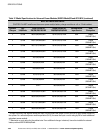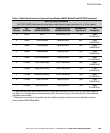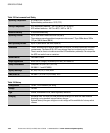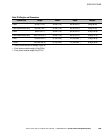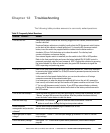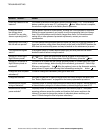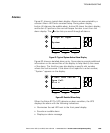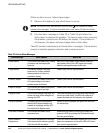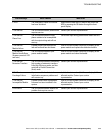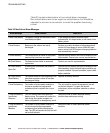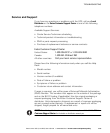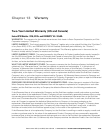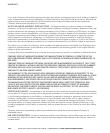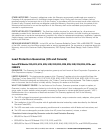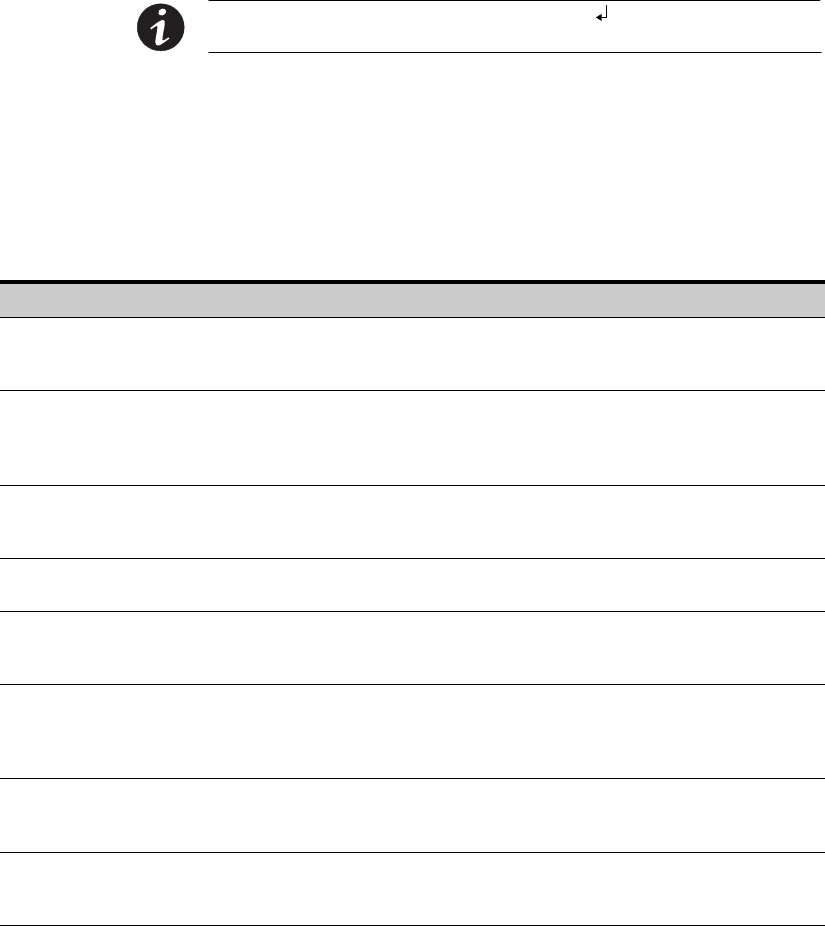
TROUBLESHOOTING
Eaton 9170
+
UPS (3–18 kVA) User's Guide S 164201393 Rev E www.eaton.com/powerquality
110
When an alarm occurs, follow these steps:
1. Observe the display to see which alarm is active.
NOTE To find out if more than one alarm is active, press . This switches the display
between alarm messages. To silence the audible alarm, press button (A) below the display.
2. Find the alarm message in Table 22 or Table 23 and follow the
instructions to resolve the problem. To clear an alarm after resolving
the problem, press button (B) below the display. If the problem is
still present, the alarm will sound again after a short delay.
Table 22 contains descriptions of critical alarm messages. Critical alarms
require immediate operator attention and corrective action.
Table 22. Critical Alarm Messages
Alarm Message What It Means What to Do
A Low Battery The UPS has shut down after running
on battery and discharging the
batteries.
Wait for AC input power to be restored. When AC
input power returns, the UPS begins recharging
batteries and applies power to the load.
C High Battery The battery voltage is too high
because of a charger problem,
battery problem, or incorrect
parameter setting.
Contact your service representative.
E Low AC Output The UPS has shut down because the
AC output voltage is too low to
provide power to the load.
Contact your service representative.
F High AC Output The UPS has shut down because the
AC output voltage is too high.
Contact your service representative.
S High AC Input The AC input voltage is too high; any
further increase to the voltage may
damage the UPS.
This alarm automatically clears when input voltage
returns to normal limits. The UPS will continue to
support the load until the batteries are depleted.
G Output Overload The load is requiring more power
than the UPS power modules are
capable of supplying, and the UPS
has switched to Bypass mode.
Switch off your equipment one piece at a time until
the alarm stops.
I Overload Shutdown The UPS has shut down due to
excessive load.
Remove excess load(s) from the UPS output and
restart the UPS by pressing the ON button through
the front panel display.
H High Heatsink
Temperature
The inverter temperature is too high.
If the temperature reaches a preset
limit, the unit will shut down.
If the UPS has not shut down, bypass the UPS or shut
down your equipment, and turn the UPS off. Contact
your service representative.



